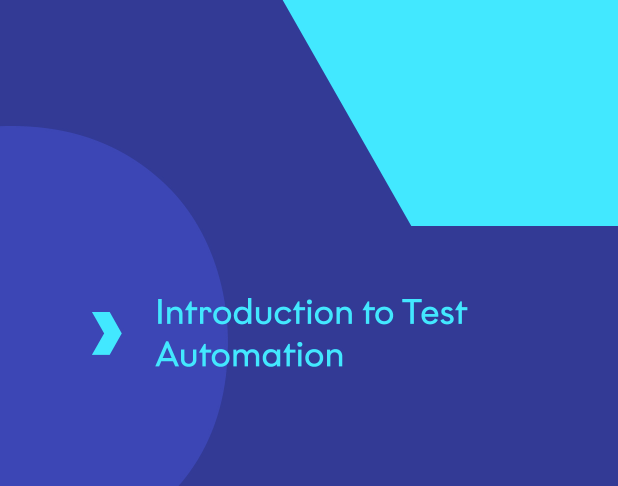Learn the fundamentals of test automation and boost your career in software testing. This one-day course will help you develop vital skills to optimise testing processes and deliver better results.
15% off eLearning, up to 20% off virtual courses - use code: EARLY1225USA
Introduction to Test Automation
Select your learning method

Master the essentials of test automation
Understand the role of automation in modern testing environments, and the impact it can have on quality and efficiency. Throughout the course, you will explore key tools, frameworks, and techniques to optimise software testing processes.
- Understand the fundamentals of test automation
- Evaluate and identify scenarios where automation would be beneficial
- Explore common automation approaches
- Understand the functionality of automation tools
- Streamline testing processes to save time and enhance quality
What you'll learn
On the Introduction to Test Automation course, you’ll gain an understanding of what test automation is, and how it fits into the modern software testing landscape. Develop a knowledge of automation tools and techniques and feel confident in your ability to implement them effectively.
The basics of test automation
Learn the core principles of test automation and how it can be used in software testing. This introduction will help you understand how automation testing can be used to enhance accuracy, speed and efficiency in software testing and quality assurance.
Automation vs manual testing
Discover the key differences between automation and manual testing and learn how to determine the right approach for a given scenario. Automation is not always appropriate, but through practical examples and expert guidance, you’ll develop the ability to assess when automation will be most effective and when a hands-on manual approach would be better suited to the task.
Automation approaches, tools and techniques
Explore the range of automation approaches available, including frameworks, platform tools, and record-and-replay methods. Gain hands-on experience with popular tools and learn how to apply these techniques to optimise testing processes and meet project demands with confidence.
- Introduction to Test Automation training, including accompanying course materials
Key facts
There is a skills and knowledge-based course with no formal accreditation.
Aimed at test practitioners who would like to understand more about automation tools and techniques.
Attendees should have at least a years’ experience of system testing, and some knowledge of writing code using Java or C++ would be useful.
There is no exam associated with this course.
There are no optional extras to accompany this course.
There is no pre-course work for this training course.
FAQs
Build the knowledge and skills needed to streamline testing processes, boost efficiency, and take the first step towards mastering automation testing with this Introduction to Test Automation course.
What test automation, and how does it compare to manual testing?
Test automation is the process of using specialised software tools to execute tests on applications, reducing the need for manual effort. It helps ensure accuracy, speed and consistency by automating repetitive tasks.
On the other hand, manual testing involves human testers executing test cases step-by-step, providing flexibility and adaptability for exploratory and usability testing. While manual testing is essential for assessing user experience and unique scenarios, automation excels at running repetitive or high-volume tests quickly and accurately.
What is a record-and-replay tool, and how is it used?
A record-and-replay tool is a software solution that allows testers to capture their interactions with an application during a testing session and then save them as a script, which can be replayed automatically to repeat the test without manual input.
Will I receive a certification upon completion of this course?
This is a skills and knowledge-based courses with no formal accreditation so you will not receive a certification upon completion of this course. However, you will be equipped with the capabilities required for successful automation testing.
Are there any prerequisites for the Introduction to Test Automation course?
To enrol on this Introduction to Test Automation course, you should have at least one years’ experience working in system testing. It is also advised that you have a knowledge of writing code using languages such as Java or C++, but this is not essential.

"Super-fast help that relieved any worry!"

“Our employees really enjoy the training delivered by ILX, and continue to recommend it to others within the organisation.”
Join the half a million learners developing their skills with our training
A trusted partner to thousands of organisations worldwide
Our passionate team goes above and beyond to support customer needs
Please complete the form to ensure your quote is accurate and we will contact you soon.